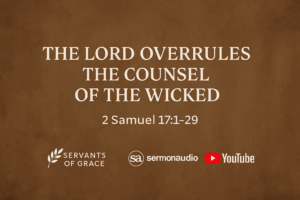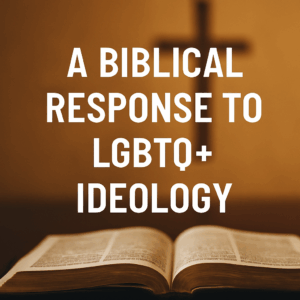⏱️ Estimated Reading Time: 3 min read
A number of years ago, as I was preparing to take the written and oral exams for ordination in the Presbyterian Church in America (PCA), I realized how little I knew about the English Bible (as opposed to the Greek and Hebrew Scriptures). Sure, I knew the stories, events, doctrines, and key characters, but there remained a large segment that was virtually untouched in my memory bank.
I didn’t know where to find those stories, events, doctrines, and key characters! For my exams, I had to know book and chapter for literally hundreds of events, people, commandments, places, and theological topics as well as outlines of most of the biblical books. I had to know who the “left-handed judge” was and where I could find him in the Bible. We had to know the biblical passages pertaining to doctrines such as Monothelitism, imputed righteousness, and the Trinity.
The Unity of Scripture
One of the primary areas of biblical study that is often overlooked is an understanding of the continuity and essential unity of Scripture—Old and New Testaments. This goes beyond mere Bible facts and verses. Can you see the unfolding drama of redemptive history throughout the pages of Scripture? Can you see how the Old Testament points toward the New Testament, how the shadows dissipate at the coming of Christ, and how the failure of the First Adam crumbles under the triumph of the Second Adam? As a Reformed minister, I see this clearly through the lens of covenant theology, the unfolding relationship between God and His people through a series of covenants throughout redemptive history.
Context
Another issue that is often overlooked in the study of Scripture is context. Knowing the literary, historical, and redemptive contexts of each Scripture passage is essential for a right interpretation of that passage. You cannot fall into the “it-means-whatever-you-think-it-means” trap. How do the New Testament writers interpret passages of the Old Testament?
Memorization and Meditation
A third area that is overlooked is the importance of memorization and meditation. Somewhere between a child’s first words and puberty, people stop memorizing Scripture. Adults and parents don’t.
Make it a regular and ongoing practice to memorize Scripture—hide God’s Word in your heart! And then meditate and pray on it. “Blessed is the man who meditates on it day and night! He is like a tree planted by streams of water that yields its fruit in its season, and its leaf does not wither” (Ps. 1:2-3). Again, meditate on Scripture in its context. Wrestle with it like Jacob wrestling with the angel and say, “I won’t let it go until I am blessed by it!” Let the words of Scripture become your words of prayer: “LORD, how are you, my Shepherd? Would you lead me to the green pastures and still waters that I may drink deeply from your truth?” Scripture is a means by which God grows us in grace.
Thus, my advice: as you prepare for the ministry, I cannot stress to you enough the importance of knowing your Bible. Yes, even the details. One of the primary ministries that you will have—besides preaching and teaching the Bible—is answering questions (in counseling, after church, over the phone, etc.), many of which will require you to know your Bible and where you can find verses about various topics, doctrines, and events.



